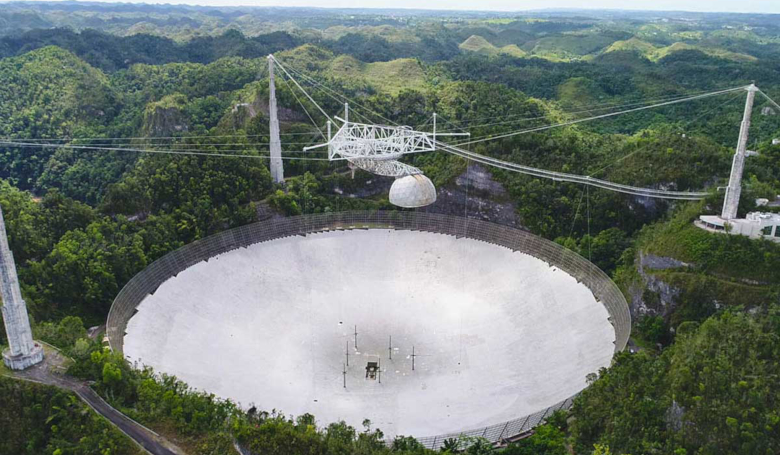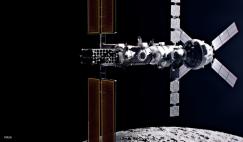There is more trouble for the famed Arecibo Observatory as a second cable has snapped, further damaging the powerful but unlucky radio telescope.
Nestled in the Puerto Rican mountains, the Arecibo Observatory has been used by scientists around the world to conduct research in the areas of atmospheric sciences, planetary sciences, radio astronomy and radar astronomy for more than 50 years.
Since it was built, the facility has endured many earthquakes and tropical storms and narrowly missed being severely damaged when Hurricane Maria blew through in 2017. But lately, the 307 metre dish, which is second only to China's Five Hundred metre Aperture Spherical Telescope (FAST), has been hit with cable problems.
Back in August this year, an auxiliary cable supporting the receiver platform snapped, causing a 30 metre (100 foot) long gash on the reflector dish.
As of mid-October, the facility had still been unable to determine the root cause of the cable failure, as engineers had not been able to retrieve the portion of the failed cable and socket for forensic analysis.
“These components cannot be retrieved until a comprehensive safety analysis of the facility is complete…And the safety plan can’t be completed without the structural analysis,” advised the University of Central Florida (UCF), who along with Universidad Ana G. Méndez and Yang Enterprises Inc. operate the observatory under cooperative agreement with the US National Science Foundation (NSF).
Now, a second cable has broken, this time involving one of the main support cables, causing additional damage to the dish and other nearby cables. Thankfully no-one was injured when it occurred.
Unlike August’s accident, this main cable did not slip out of its socket, but instead broke and fell onto the reflector dish below.
“This is certainly not what we wanted to see, but the important thing is that no one got hurt,” said Francisco Cordova, the director of the observatory.
Temporary emergency repairs related to the August incident were expected to commence this week at Arecibo, but will now be put on hold until a suitable strategy to address the new break are formulated.
The facilities operators have drafted in engineering firms WSP, Thornton Tomasetti and Wiss, Janney, Elstner Associates Inc to assist with the latest repairs.
“We have been thoughtful in our evaluation and prioritised safety in planning for repairs that were supposed to begin Tuesday. Now this. There is much uncertainty until we can stabilize the structure. It has our full attention,” Cordova says.
Officials haven’t yet been able to determine why the main cable broke, but they suspect it is related to the extra load the remaining cables have been carrying since the incident a few months a go.
It is hoped that the engineers will be able to temporarily reduce some of the additional load that is being distributed among the remaining cables by installing steel reinforcements.
As of 8 November, a safety zone has been set up around the dish out of an abundance of caution and only personnel needed to respond to the incident are allowed onsite.
Drones and cameras are also being used to monitor the structure following Friday’s unfortunate event.
It is unclear what the costs will be for the new repairs, and UCF say they still have a supplemental funding request pending with the NSF regarding August’s cable break repairs.
In the meantime, although the facility has suspended most of its operations since August, researchers continue to use data already collected by the radio observatory to push ahead with their research.
“This is not good, but we remain committed to getting the facility back online,” Cordova said. “It’s just too important of a tool for the advancement of science.”











